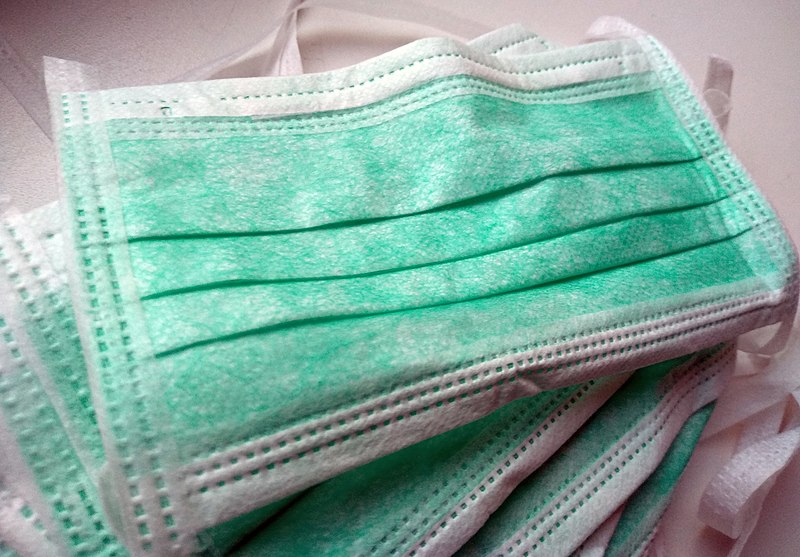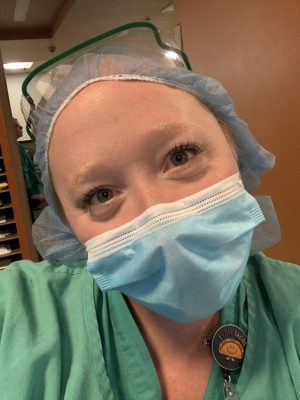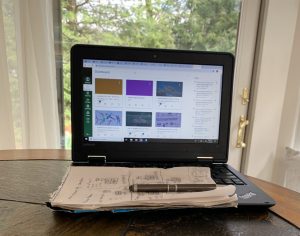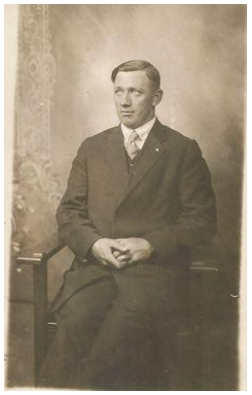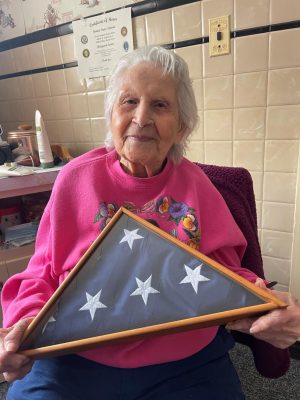The Impact of COVID-19 on Healthcare Workers
Living with the Stress of Uncertainty
https://www.nursetogether.com/ via Wikimedia Commons, with permission
A pile of face masks used to stop the spread of COVID-19, or coronavirus. These masks are becoming a common sight everywhere in an attempt to stop the contagion threat.
April 21, 2020
Bryan Dunlap is an X-ray technician at the Carney Hospital in Dorchester. Dunlap has been working in healthcare for 12 years. However, Dunlap says has never experienced a pandemic of this intensity and length.
On Thursday, April 16, Abington High School senior Sean Moran sat down with Dunlap, his stepfather, and asked him questions regarding the impact that COVID-19 has left on him and his workplace.
Sean Moran: Do you run into patients with the virus often?
Bryan Dunlap: Every day. Most of all of our patients are coming in for suspicion of having COVID-19.
Moran: How many patients do you encounter a day on average?
Dunlap: During my typical 8-hour shift, I will personally see close to 15-20 COVID-19 patients alone. We are just a small community hospital.
Moran: Has the virus resulted in more or less patients visiting than prior?
Dunlap: Visitation at any hospital is all but eliminated at the present time. Hospitals are doing their best to find alternative means but ultimately the safety of the patients is the number one priority.
Moran: Do your patients wear masks or take other precautions when in the building?
Dunlap: Yes, every person who comes into our hospital is required to wear a mask.
Moran: Are you and your coworkers taking precautionary actions to stay safe? If so, what are they?
Dunlap: We wear the very infamous personal protective equipment (PPE) with every patient. We are each given one N95 mask that we have to make last as long as possible. Each shift we are given one surgical mask to wear for the day. In addition, we also have to wear hair coverings, goggles, and gowns over our clothes.
Moran: Is your workplace understaffed or are there still a sufficient amount of employee personnel?
Dunlap: We are sufficiently staffed for the projected number of patients. But since this is such an unpredictable event anything can happen at any point.
Moran: Are workers who are at higher risk compensated for working in a dangerous environment?
Dunlap: No compensation has been given at the present time and day (April 16th).
Moran: Is pay higher due to the virus?
Dunlap: No, it remains the same.
Moran: Are there other positions that put you more or less at risk in your work zone?
Dunlap: When we go into the room to perform the x-ray is when we are in the most risk.
Moran: Do you have concerns about possibly becoming a carrier of the virus?
Dunlap: I am not overly concerned myself, because I have accepted the fact that I am working in very high risk category of becoming a carrier.
Moran: Have you had relatives, friends, or coworkers who have gotten the virus?
Dunlap: Yes, I have had one friend test positive for COVID-19.
Moran: How much has the virus effected your work schedule?
Dunlap: It has completely changed our entire hospital’s schedule. Since volume is down, they have had to cut down in some areas the staff that is needed. The ones they kept on, they had to make them take other shifts in the interim.
Moran: Is your job easier or more difficult due to the virus?
Dunlap: It is more or less the same. Maybe a little more stress due to the uncertainty of what the day will bring.
Moran: Has the virus changed the way you perform your job? How so if it has?
Dunlap: Yes, very much so. We have to have two people if possible go for every exam. One person goes into the room, and the other will stay outside of the room so we can keep our equipment as clean as possible.
Moran: When is the estimated time that your work conditions will return to normal?
Dunlap: That is unknown. We are taking everything one day at a time and are given daily briefings.

